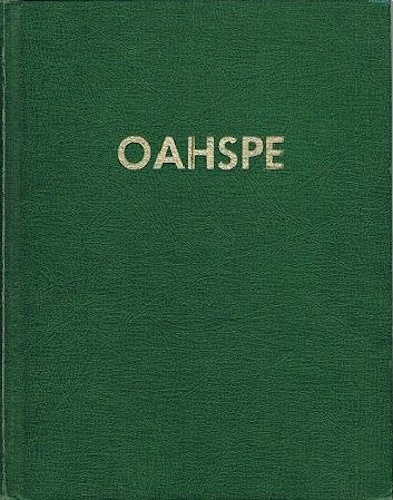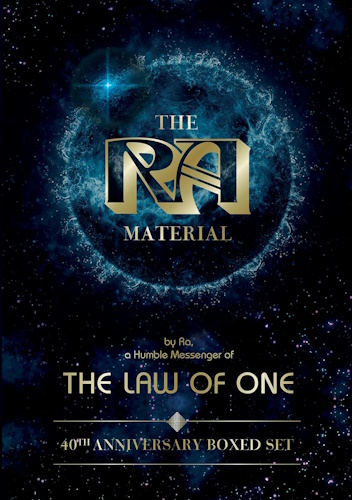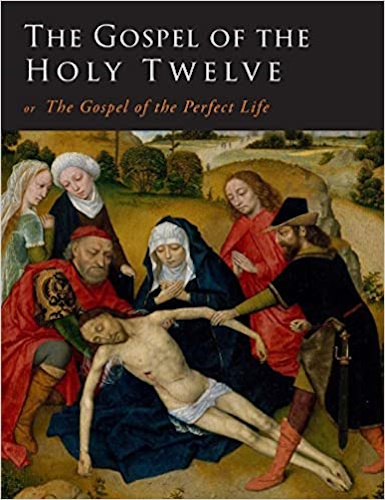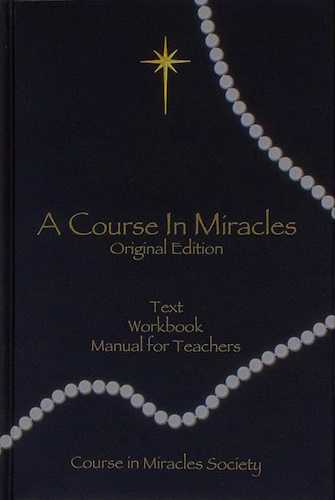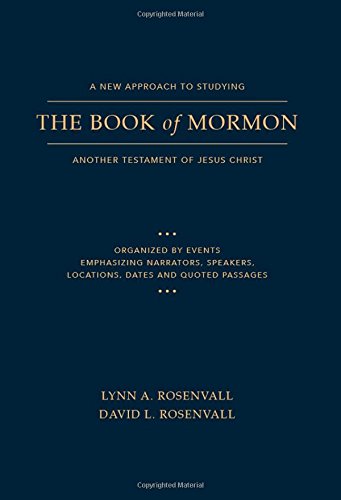
![]()
![]()
Book of Wars Against Jehovih
Chapter XXXV
1. SUDGA, the false God of Vind'yu and her heavens, whose heavenly kingdom contained more than three thousand million angels, on his way home from Hored, said to himself: Two things I am resolved upon: to proclaim myself CREATOR AND RULER OF HEAVEN AND EARTH; and to change the name of my heavenly place and call it AHL-BURJ, THE MOUNTAIN OF THE CLOUDS.
2. Satan spoke to Sudga, saying: Thou all highest God, hear me. In the land of Vind'yu, down on the earth; and in the heavens above the land of Vind'yu; what God hath labored like unto thee? Thou didst establish De'yus, for nearly a thousand years in these regions. Thou possessest by right that name, and thou shalt call thyself De'yus and Sudga; and thy heavenly place shall also be Hored, because, forsooth, it is also a heavenly mountain.
3. Sudga said: Most wisely said, O satan.
4. And so it came to pass that Sudga at once fell to work moving his capital and throne, and to founding his new place. And he also chose twelve Lords, saying to himself, after the manner of Te-in: Though I will have twelve Lords to rule over mortals, yet will I not give to any one of them a certain division of the earth for his.
5. And when Sudga was thus founded in his new heavenly place he called his Lords about him and said unto them: Go ye down to mortals, to T-loyovogna, who hath a small kingdom in the Valley of Hachchisatij, in Vind'yu, for I will make him king of all the earth, even as I am ruler of heaven. And by obsessions and otherwise ye shall lead him forth to conquer and subdue.
6. Precede ye him in his journeyings, and cause mortals to fear him, that they be easily overcome. Twelve million angels I allot to you as your army, nor shall ye return into my presence until ye have made T-loyovogna king of Vind'yu. After that I shall bestow you according to merit.
p. 421
7. The twelve Lords, with their twelve million angels of war, departed for the earth, and came to Varaja, the city where lived and ruled T-loyovogna, and they covered the regions around about, even beyond the Valley of Hachchisatij.
8. T-loyovogna was the son of Hucrava, who was the son of Han Cyavarat, who was the son of Aipivohu, sacred in su'is to the Gods and Lords of heaven. So T-loyovogna talked with Sudga's chief Lord, who said unto him: Behold, thou shalt proclaim thyself king of all the world; for I and the hosts of heaven are with thee.
9. T-loyovogna said: Alas, mine is the weakest of kingdoms; I have not a thousand soldiers. Other kings will laugh at me. But the Lord answered him, saying: What are mortal kings in the hands of De'yus, he who was Sudga? I say unto the nations of the earth: Go down! and they fall. I say: Rise ye up! and they rise. Man looketh to stone and clay and water for great power; but I that am unseen am greater than all the lands and the waters of the earth, for I rule over them, and over heaven also.
10. I will have but one king on the earth; and as I rule the angels of heaven, even so shalt thou rule mortals, and establish thee and me forever! For thy heirs, and their heirs after them, shall have dominion over every kingdom and country in the world.
11. T-loyovogna said: I fear thee, O De'yus; I know thy power. But how can a king go to war without soldiers? Or an army without arms? The Lord answered him: Send thy proclamation unto kings far and near, commanding them to bow down unto thee. And presently I will come unto thee and lead thee forth, and thou shalt conquer and subdue them, and not a hair of thy head shall be harmed.
12. T-loyovogna did as commanded; and some days after his proclamation had been sent unto the nearest kings, all of whom knew him well, he mustered his army of seven hundred men and one hundred women. And they that had neither spear, nor sword, nor scythe, nor bow and arrows, took clubs, and clappers, and pans, to make noise with, and others took lanterns.
13. The first city they approached was Abtuib, ruled over by Azhis, who had an army of four thousand men and one thousand women. When near the place, T-loyovogna sent his demand for the surrender of the city. Azhis answered him not, but said unto his army: Go ye and surround yonder fool, and destroy him and his army.
14. Now, behold, the night came on, very dark, ere the attack was made. And the Lord said unto T-loyovogna: Command thy soldiers to light their lamps. T-loyovogna said: I fear, O Lord; for will not lamps expose us unto death? But the Lord said: Light the lamps! So when the lamps were lighted the enemy began to march as if to surround them, some going one way and some the other.
15. And the Lord's angels made lights also, to the left and to the right, so that the enemy, in order to surround the lights, kept extending in two lines, away from each other. Presently, they judged by the lights that there were tens of thousands of soldiers come against them. Suddenly, now, T-loyovogna's army sounded their pans and kettles, and set up furious howls and screams; and in the same time the angels of heaven cast stars of light in the midst of Azhis' army, and they became panic-stricken and fled in all directions, save three hundred who were captured and put to death. Then T-loyovogna sent one hundred men into the city and captured Azhis and slew him. After this, T-loyovogna entered the city and declared the place his.
16. And whilst it was yet night, thousands and thousands of the people came and prostrated themselves before T-loyovogna, swearing allegiance. And in the morning of the next day he proclaimed himself king; and he impressed thirty thousand men to build a temple to De'yus; and yet other twenty thousand to change the streets, and otherwise beautify the place. In forty days the temple was completed, and was large enough for eight thousand souls to do sacrifice in at one time. T-loyovogna compelled the people to prostrate themselves on their bellies and pray to De'yus, whose home was in Ahl-burj, a high heavenly place, a mountain above the mountains.
17. After this T-loyovogna changed the name of the city of Savazata, signifying, first fire-place; and he appointed to rule over it Vistaqpa, to be governor, with right to bequeath it to his son after him.
18. For Sudga had said: To concentrate power, this is the greatest. There shall be but one heavenly ruler, and his Lords shall be his helpmates. Even so shall there be but one king, and his governors shall be his helpmates in the same manner.
19. T-loyovogna then marched forward, to conquer and subdue
p. 422
another city; which he accomplished also, and changed the name, appointed a govrnor, making all the people swear allegiance to himself as king, and to Sudga, the De'yus, as heavenly ruler, creator of worlds.
20. In this way, even after the same manner as Kan Kwan in Jaffeth, did T-loyovogna proceed in Vind'yu, from city to city, conquering and subduing. For the Gods, Te-in and Sudga, had oft conferred together on this subject previously, and had long experience in manipulating mortals in their games of life and death, nor did mortals mistrust the power over them.
21. Hear ye next of Osiris and his Gods, Baal and Ashtaroth, whose heavenly kingdoms contained more than twelve thousand million angels.
-
Urantia Book, 44:0.11 - The Celestial Artisans
Never in your long ascendancy will you lose the power to recognize your associates of former existences. Always, as you ascend inward in the scale of life, will you retain the ability to recognize and fraternize with the fellow beings of your previous and lower levels of experience. Each new translation or resurrection will add one more group of spirit beings to your vision range without in the least depriving you of the ability to recognize your friends and fellows of former estates.
-
Princess Bride 1987 Wallace Shawn (Vizzini) and Mandy Patinkin (Inigo Montoya)
Vizzini: HE DIDN'T FALL? INCONCEIVABLE.
Inigo Montoya: You keep using that word. I do not think it means what you think it means. -
Urantia Book, 117:4.14 - The Finite God
And here is mystery: The more closely man approaches God through love, the greater the reality -- actuality -- of that man. The more man withdraws from God, the more nearly he approaches nonreality -- cessation of existence. When man consecrates his will to the doing of the Father's will, when man gives God all that he has, then does God make that man more than he is.
-
Urantia Book, 167:7.4 - The Talk About Angels
"And do you not remember that I said to you once before that, if you had your spiritual eyes anointed, you would then see the heavens opened and behold the angels of God ascending and descending? It is by the ministry of the angels that one world may be kept in touch with other worlds, for have I not repeatedly told you that I have other sheep not of this fold?"
-
Urantia Book, Foreword - 0:12.12 - The Trinities
But we know that there dwells within the human mind a fragment of God, and that there sojourns with the human soul the Spirit of Truth; and we further know that these spirit forces conspire to enable material man to grasp the reality of spiritual values and to comprehend the philosophy of universe meanings. But even more certainly we know that these spirits of the Divine Presence are able to assist man in the spiritual appropriation of all truth contributory to the enhancement of the ever-progressing reality of personal religious experience—God-consciousness.
-
Urantia Book, 1:4.3 - The Mystery Of God
When you are through down here, when your course has been run in temporary form on earth, when your trial trip in the flesh is finished, when the dust that composes the mortal tabernacle "returns to the earth whence it came"; then, it is revealed, the indwelling "Spirit shall return to God who gave it." There sojourns within each moral being of this planet a fragment of God, a part and parcel of divinity. It is not yet yours by right of possession, but it is designedly intended to be one with you if you survive the mortal existence.
-
Urantia Book, 1:4.1 - The Mystery Of God
And the greatest of all the unfathomable mysteries of God is the phenomenon of the divine indwelling of mortal minds. The manner in which the Universal Father sojourns with the creatures of time is the most profound of all universe mysteries; the divine presence in the mind of man is the mystery of mysteries.
-
Urantia Book, 1:4.6 - The Mystery Of God
To every spirit being and to every mortal creature in every sphere and on every world of the universe of universes, the Universal Father reveals all of his gracious and divine self that can be discerned or comprehended by such spirit beings and by such mortal creatures. God is no respecter of persons, either spiritual or material. The divine presence which any child of the universe enjoys at any given moment is limited only by the capacity of such a creature to receive and to discern the spirit actualities of the supermaterial world.
-
Urantia Book, 11:0.1 - The Eternal Isle Of Paradise
Paradise is the eternal center of the universe of universes and the abiding place of the Universal Father, the Eternal Son, the Infinite Spirit, and their divine co-ordinates and associates. This central Isle is the most gigantic organized body of cosmic reality in all the master universe. Paradise is a material sphere as well as a spiritual abode. All of the intelligent creation of the Universal Father is domiciled on material abodes; hence must the absolute controlling center also be material, literal. And again it should be reiterated that spirit things and spiritual beings are real.
-
Urantia Book, 50:6.4 - Planetary Culture
Culture presupposes quality of mind; culture cannot be enhanced unless mind is elevated. Superior intellect will seek a noble culture and find some way to attain such a goal. Inferior minds will spurn the highest culture even when presented to them ready-made.
-
Urantia Book, 54:1.6 - True And False Liberty
True liberty is the associate of genuine self-respect; false liberty is the consort of self-admiration. True liberty is the fruit of self-control; false liberty, the assumption of self-assertion. Self-control leads to altruistic service; self-admiration tends towards the exploitation of others for the selfish aggrandizement of such a mistaken individual as is willing to sacrifice righteous attainment for the sake of possessing unjust power over his fellow beings.
-
Urantia Book, 54:1.9 - True And False Liberty
How dare the self-willed creature encroach upon the rights of his fellows in the name of personal liberty when the Supreme Rulers of the universe stand back in merciful respect for these prerogatives of will and potentials of personality! No being, in the exercise of his supposed personal liberty, has a right to deprive any other being of those privileges of existence conferred by the Creators and duly respected by all their loyal associates, subordinates, and subjects.
-
Urantia Book, 54:1.8 - True And False Liberty
There is no error greater than that species of self-deception which leads intelligent beings to crave the exercise of power over other beings for the purpose of depriving these persons of their natural liberties. The golden rule of human fairness cries out against all such fraud, unfairness, selfishness, and unrighteousness.
